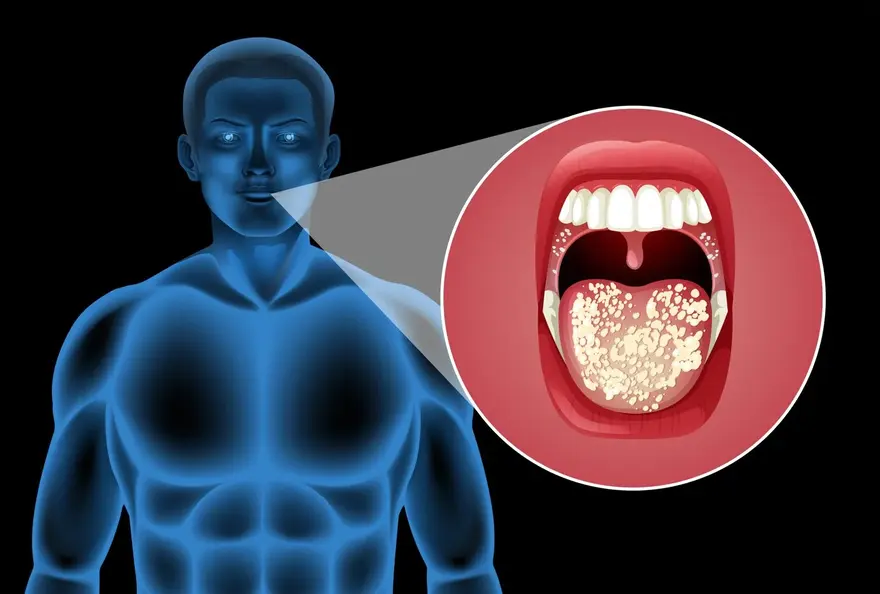Preventive Healthcare
Navigating Wheat Allergies: Symptoms, Treatments, and Allergen Avoidance
2272 Views
0

Wheat allergies can be a lifelong challenge, impacting individuals from childhood to their adulthood. While there's no cure for this allergy, understanding its symptoms, treatment options, and the importance of allergen avoidance is vital. In this article, we'll discuss wheat allergies, shedding light on the key aspects of managing this condition effectively.
From recognizing symptoms to discussing symptom relief strategies and the significance of strict wheat avoidance, we'll discuss the essential knowledge needed to lead a healthier life with a wheat allergy. Let's start by exploring the symptoms and the impact of wheat allergies on those who experience them.
What is a Wheat Allergy?
A wheat allergy is an allergic reaction triggered by the proteins found in wheat. When someone with a wheat allergy consumes or is exposed to wheat, their immune system overreacts, leading to various symptoms. This is different from other conditions like gluten sensitivity and celiac disease, where the reactions are distinct. Wheat allergy levels can vary in severity from mild to severe, depending on the individual's sensitivity.
Who Does a Wheat Allergy Affect?
Wheat allergies can affect people of all ages, but they are often diagnosed in children. Many children outgrow this allergy as they get older. However, it can persist into adulthood or even develop later in life.
How Common is a Wheat Allergy?
Wheat allergies are relatively common, with a search volume of 1,900, indicating significant interest and awareness. The prevalence varies by region, but it's essential to recognise the potential risk, especially in individuals with a family history of allergies.
How Does a Wheat Allergy Affect My Body?
When an individual with a wheat allergy is exposed to wheat proteins, their immune system launches a rapid and often exaggerated response. This heightened immune reaction is mediated by the release of chemicals like histamine, which play a central role in allergic responses.
Histamine triggers a cascade of physiological changes throughout the body, leading to a wide range of symptoms. The severity and type of symptoms can vary from person to person, but they generally fall into several categories.
- Skin Reactions: Histamine release can result in skin-related symptoms, such as hives (raised, itchy welts on the skin), itching, redness, and swelling. These symptoms often appear within minutes of contact with wheat proteins.
- Gastrointestinal Issues: Many individuals with a wheat allergy experience gastrointestinal symptoms, including nausea, stomach pain, indigestion, vomiting, or diarrhoea. These symptoms can be distressing and uncomfortable.
- Respiratory Symptoms: In some cases, exposure to wheat proteins can lead to respiratory symptoms like a runny nose, sneezing, and even asthma-like symptoms. These may involve coughing, wheezing, and difficulty breathing.
- Severe Reactions: In intense cases, a wheat allergy can trigger a life-threatening allergic reaction known as anaphylaxis. Anaphylaxis can cause a sudden fall in blood pressure, swelling of the throat, and difficulty breathing. It requires immediate medical attention.
What are the Symptoms of a Wheat Allergy?
Wheat allergy symptoms can vary and may include hives, itching, abdominal pain, diarrhoea, and difficulty breathing. Anaphylaxis, a severe and life-threatening reaction, can also occur and requires immediate medical attention.
How Long After Eating Wheat Do Symptoms Appear?
Symptoms of a wheat allergy can appear shortly after consuming wheat, typically within minutes to hours after ingestion. The timing may vary from person to person.
What Causes a Wheat Allergy?
The exact cause of wheat allergies is not fully understood, but it is believed to involve a combination of genetic and environmental factors. Exposure to wheat proteins triggers the immune response in susceptible individuals, leading to allergic reactions.
Can You Suddenly Become Allergic to Wheat?
Yes, it is possible to develop a wheat allergy suddenly, even in adulthood. Some people may not have had allergies earlier in life but can develop them later. It's essential to be aware of any new allergic reactions to wheat and seek medical advice.
Is a Wheat Allergy Contagious?
No, wheat allergies are not contagious. They result from an individual's immune system response to wheat proteins and cannot be transmitted from person to person.
How is a Wheat Allergy Diagnosed?
Diagnosing a wheat allergy involves a combination of medical history, physical examination, and specific wheat allergy tests. Allergy testing, such as skin prick tests and blood (IgE) tests, can help identify wheat allergies. In some cases, a graded oral challenge may be required for a definitive diagnosis. The wheat allergy test normal range helps determine if an individual has a wheat allergy based on specific IgE levels.
What Tests Will be Done to Diagnose a Wheat Allergy?
To diagnose a wheat allergy, several wheat allergy tests may be performed to determine if an individual is allergic to wheat. These tests include:
Skin Prick (Scratch) Test
In a skin prick test, a small amount of wheat extract is applied to the skin, usually on the forearm or back. Then, a tiny needle is used to prick the skin beneath the extract. If an individual is allergic to wheat, they may develop a raised, red, and itchy bump at the site of the prick within 15-20 minutes. This wheat allergy test is a quick and relatively simple way to assess allergic reactions to wheat.
Blood (IgE) Test
A blood test measures the levels of specific antibodies called immunoglobulin E (IgE) in the blood. Elevated levels of IgE antibodies to wheat proteins may indicate a wheat allergy. This test is useful when a skin test cannot be performed due to skin conditions or interactions with medications.
Graded Oral Challenge
In some cases, when the diagnosis remains uncertain after initial tests, a graded oral challenge may be conducted. This involves supervised ingestion of small amounts of wheat under medical supervision. The patient's reaction to wheat consumption is closely monitored, and this helps determine if a wheat allergy exists.
Can You Get Rid of a Wheat Allergy?
Managing a wheat allergy primarily involves strict avoidance of wheat-containing foods and products. Unfortunately, there is no known cure for wheat allergies. While some children may outgrow this allergy, it frequently persists into adulthood. This lifelong condition necessitates vigilance in reading food labels and scrutinising ingredients to prevent accidental exposure to wheat proteins.
Symptom management plays a crucial role in improving the quality of life for individuals with wheat allergies. Over-the-counter antihistamines may help alleviate mild allergic reactions, such as itching and hives. In severe cases, individuals may be prescribed epinephrine injectors (EpiPens) to counteract potentially life-threatening anaphylactic reactions.
Education and awareness are key aspects of managing wheat allergies. Patients and their families should be well-informed about allergen avoidance strategies and how to respond to allergic reactions promptly.
What Foods Should I Avoid if I Have a Wheat Allergy?
People with wheat allergies should avoid all foods that contain wheat or wheat-related ingredients. This includes bread, pasta, pastries, and many processed foods. Reading food labels carefully is crucial to identify potential sources of wheat. Sudden wheat allergy in adults can develop, and it's important to seek medical evaluation if new allergic reactions to wheat occur.
What Medications Are Used to Treat a Wheat Allergy?
There are no medications that can cure a wheat allergy. However, antihistamines and epinephrine auto-injectors (such as EpiPen) can be prescribed by doctors to manage wheat allergy symptoms. Consult a doctor before taking these medicines in emergency treatment of severe allergic reactions.
How Can I Prevent a Wheat Allergy?
Preventing a wheat allergy is not always possible, as it can be influenced by genetic factors. However, early introduction of wheat to infants as part of a balanced diet may help reduce the risk of developing wheat allergies.
What Can I Expect If I Have a Wheat Allergy?
If you have a wheat allergy, you should be prepared to manage your condition by avoiding wheat-containing foods and carrying necessary medications, as prescribed by the doctor. It's crucial to be vigilant about food choices and communicate your allergy to others, especially when dining out or attending social events.
Is a Wheat Allergy the Same as a Gluten Allergy?
No, a wheat allergy is different from gluten sensitivity or intolerance. Wheat allergy involves an immune reaction to wheat proteins, while gluten sensitivity or celiac disease is a distinct condition related to an intolerance to gluten, a protein found in wheat and rye.
What Is the Difference Between a Wheat Allergy and a Gluten Intolerance?
A wheat allergy is an allergic reaction to proteins found in wheat. Whereas gluten intolerance is also known as non-celiac gluten sensitivity. It involves difficulty digesting gluten without an autoimmune response. The symptoms and mechanisms of these conditions differ.
What Is the Difference Between a Wheat Allergy and Celiac Disease?
Celiac disease is an autoimmune disorder triggered by the ingestion of gluten, which is found in wheat, barley, and rye. Wheat allergy, on the other hand, is an allergic reaction to specific proteins in wheat. While they share some symptoms, the underlying mechanisms and wheat allergy treatment approaches are different.
Conclusion
A wheat allergy is an immune response to wheat proteins, leading to various symptoms. To manage it, recognise symptoms, avoid wheat, and seek medical guidance. Differentiate it from similar conditions like gluten sensitivity and celiac disease and consult a healthcare professional for personalised advice.
For reliable diagnostics, trust Metropolis Healthcare, India's top pathology lab chain. We offer convenient at-home blood sample collection by qualified technicians, processed at advanced labs. Access reports online through email or the TruHealth app.
Stay informed and seek professional help for wheat allergies and other health issues.























 WhatsApp
WhatsApp